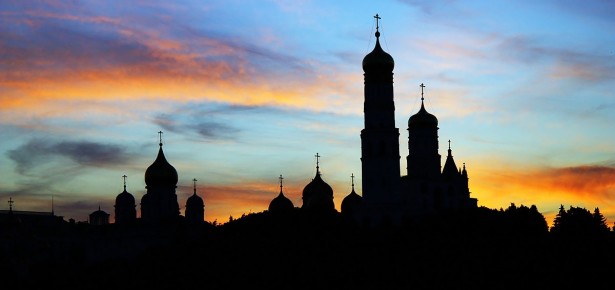
American-Russian relations are broken, and cannot be repaired until the US foreign policy community takes stock of post-2008 realities. The United States and Western Europe are no longer the poster children of economic prosperity. Their democracies and societies are in turmoil, and Russia has successfully restored its nuclear superpower without Washington taking the slightest public notice.
The establishment (Democrats and most Republicans) and Donald Trump’s anti-establishment are engaged in a no-holds barred “Punch and Judy” battle about suspicious dealing with Vladimir Putin. The media is providing no light, just accusations and false news. In the heat of battle, Democrats have forgotten that they were the architects of Barack Obama’s, Joe Biden’s and Hillary Clinton’s “reset” initiative built around “trusting Putin” and “giving peace a chance”. They pounce on Trump for “confidence building”, and accuse him of treasonously “sleeping with the enemy”. Many Republicans also fault Trump for the same sins. The Democrats want tougher economic and political sanctions imposed on the Kremlin, and the Republicans are advocating military countermeasures.
Both the establishment and Trump’s anti-establishment are living in bubbles of illusion. They do not appreciate that America has lost its ability to bully Russia in all three dimensions of geopolitical persuasion: ideology, prosperity and hard power. The United States lured Gorbachev into dissolving the Soviet Union with the “American Dream”: democracy, free enterprise, equal opportunity and the rule of law. The American Dream however was transformed under Bill Clinton’s presidency into Strobe Talbott’s concept of the “Global Nation” immediately after the USSR’s demise.[1] The Global Nation version of the American Dream subordinates democracy, free enterprise, equal opportunity and the rule of law to the goals of affirmative action, egalitarianism, restorative justice and the ethnic transformation of America into a global blend that is repellent to Putin. This may be Putin’s moral failing, but that does not matter from the perspective of American soft power. Russia is not yearning to join the Global Nation. Putin ridicules Talbott’s Dream and the Russian people applaud. Trump’s populism likewise does not resonate in the Kremlin’s corridors.
America and the European Union are no longer paragons of prosperity. Economic recovery after the 2008 financial crisis has been anemic, and invisible in the EU. Failure does not impress the Kremlin. Nor is Moscow daunted by the inexorable decline in NATO defense spending and preparedness, or its unwillingness to fight.
America is playing a weak hand, but its leaders only see aces.
America is playing a weak hand, but its leaders only see aces. They do not perceive any need to redesign their various ideological messages, make political sacrifices to restore economic vitality, or commit to a hard power strategy capable of impressing the Kremlin. They are in La La Land, and Putin will take full advantage of their delusions.
[1] Strobe Talbott, “America Abroad: The Birth of the Global Nation”, Time, July 20, 1992. http://channelingreality.com/Documents/1992_Strobe_Talbot_Global_Nation.pdf “In the next century, nations as we know it will be obsolete; all states will recognize a single, global authority. National sovereignty wasn’t such a great idea after all.” Talbott is a well-connected and highly visible public intellectual. He served as United States Deputy Assistant Secretary of State 1994-2001 under President Bill Clinton; Director of the Yale Center for the Study of Globalization. He is currently the president of the Brookings Institution in Washington, D.C., and a member of the Council on Foreign Relations.
Latest Comments
Have your say!